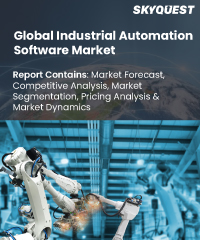
Product ID: SQMIG20I2176
Report ID:
SQMIG20I2176 |
Region:
Global |
Published Date: February, 2024
Pages:
250
|
Tables:
106 |
Figures:
76
We respect your privacy rights and safeguard your personal information. We prevent the disclosure of personal information to third parties.
The need for industrial automation software is being driven by the increasingly dynamic requirements of diverse sectors as well as sophisticated operations and procedures. It reduces the number of machine hours needed for processes, which is only achievable with reliable software.

Product ID: SQMIG20I2176